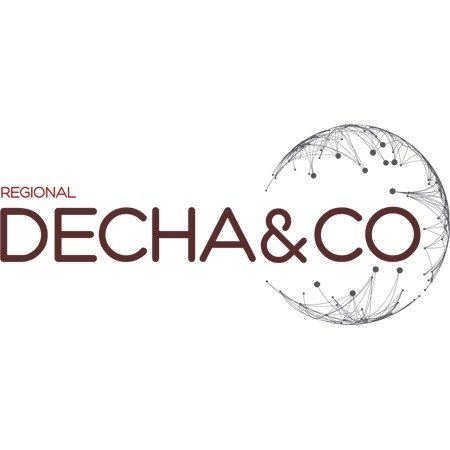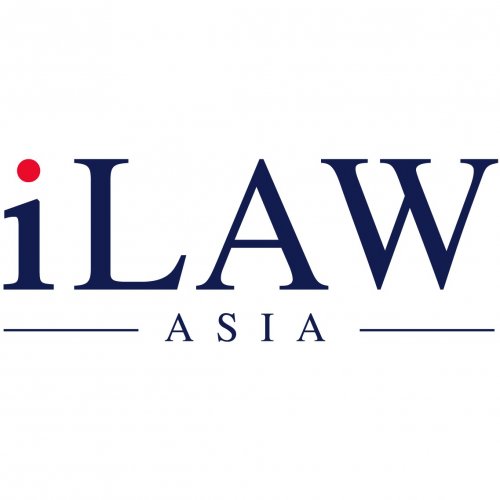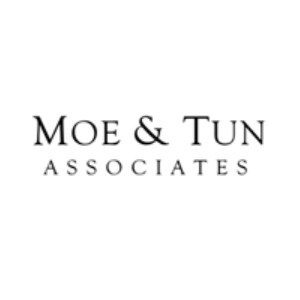Best Government Relations & Lobbying Lawyers in Yangon
Share your needs with us, get contacted by law firms.
Free. Takes 2 min.
List of the best lawyers in Yangon, Myanmar
About Government Relations & Lobbying Law in Yangon, Myanmar:
Government relations and lobbying in Yangon, Myanmar, are essential facets of the political and business landscape. These practices involve engaging with government officials and policymakers to advocate for specific interests or policies. In Myanmar, navigating the intricate regulatory environment requires understanding the unique political and legal context, characterized by ongoing democratic transitions and a complex bureaucratic framework. Lobbying efforts are typically directed through formal channels to influence legislation, regulation, or public policy to align with specific business or organizational goals.
Why You May Need a Lawyer:
Engaging in government relations and lobbying in Yangon might necessitate legal assistance for a variety of reasons. Whether you are a foreign investor, a local entrepreneur, or an NGO, legal counsel can help you to:
- Understand and navigate the complex legislative and regulatory framework.
- Ensure compliance with all applicable local laws and regulations related to lobbying and advocacy.
- Prepare and submit required documents or registration for lobbying efforts.
- Develop strategies for effective government engagement.
- Resolve disputes or negotiate agreements with government bodies.
- Interpret policy changes and their potential impacts on your interests.
- Mitigate risks associated with engaging in lobbying activities in a transitioning political environment.
Local Laws Overview:
The legal landscape for government relations and lobbying in Yangon includes several key aspects:
- Registration Requirements: Entities and individuals involved in lobbying may be required to register with relevant governmental bodies to ensure transparency and accountability.
- Regulatory Compliance: Compliance with sector-specific regulations in industries such as telecommunications, energy, and infrastructure is crucial to lawful lobbying practices.
- Ethical Standards: Adherence to ethical guidelines and codes of conduct is essential to maintain integrity and trust in communications with government officials.
- Disclosure and Reporting: Regular reporting of lobbying activities and expenditures may be mandated to ensure public disclosure.
- Restrictions and Prohibitions: Some activities may be restricted or prohibited, particularly where conflicts of interest or inappropriate influence are concerned.
Frequently Asked Questions:
What is lobbying in the context of Yangon, Myanmar?
Lobbying in Yangon involves engaging with government officials and legislators to influence public policy and decision-making to serve particular interests, whether for businesses, NGOs, or other entities.
Do I need to register as a lobbyist in Yangon?
Yes, registration is often required for individuals and entities involved in lobbying to ensure adherence to legal standards of transparency and accountability.
Are there ethical guidelines for lobbying in Myanmar?
Yes, engaging in lobbying activities necessitates adherence to ethical guidelines, including the avoidance of conflicts of interest and maintaining the integrity of communications with officials.
How can I ensure compliance with local regulations?
Working with a knowledgeable lawyer can help navigate local regulations and ensure that all legal and regulatory requirements are met in lobbying efforts.
What legal risks are associated with lobbying in Yangon?
Potential legal risks include violations of registration requirements, non-disclosure of lobbying activities, and conflicts of interest, which can lead to penalties or reputational damage.
How can a lawyer assist me in lobbying activities?
Lawyers can provide strategic advice, ensure regulatory compliance, aid in the preparation of required documentation, and represent your interests in interactions with government bodies.
Are there restrictions on activities that can be lobbied for?
Yes, some activities, especially those conflicting with public interest or involving undue influence, may be restricted or prohibited under local laws.
How often do I need to report my lobbying activities?
Reporting frequency depends on specific regulatory requirements, which your lawyer can clarify, ensuring all activities and expenditures are reported in a timely manner.
What are the consequences of non-compliance with lobbying laws in Myanmar?
Non-compliance can result in legal penalties, fines, and damage to professional reputation, as well as limitations on future lobbying activities.
Can foreign entities engage in lobbying in Yangon?
Foreign entities can engage in lobbying, but they must adhere to the same registration and compliance requirements as local entities, and understanding cross-border implications is crucial.
Additional Resources:
For more information and support in government relations and lobbying in Yangon, consider reaching out to the following resources:
- The Union of Myanmar Federation of Chambers of Commerce and Industry (UMFCCI).
- The Myanmar Investment Commission (MIC).
- Legal firms specializing in governmental and regulatory affairs.
- Local business associations and industry-specific groups.
- International organizations with a presence in Myanmar focusing on legal and economic policies.
Next Steps:
If you need legal assistance with government relations and lobbying in Yangon, consider the following steps:
- Identify Needs: Clearly define your goals and understand the aspects of your operations that require legal consultation.
- Research Legal Experts: Seek out legal professionals with experience in government relations and regulatory compliance in Myanmar.
- Initial Consultation: Arrange consultations with prospective legal firms or experts to determine their approach and suitability for your needs.
- Ongoing Collaboration: Engage with your selected legal team to develop strategies, ensure compliance, and effectively manage government relations and lobbying activities.
Lawzana helps you find the best lawyers and law firms in Yangon through a curated and pre-screened list of qualified legal professionals. Our platform offers rankings and detailed profiles of attorneys and law firms, allowing you to compare based on practice areas, including Government Relations & Lobbying, experience, and client feedback.
Each profile includes a description of the firm's areas of practice, client reviews, team members and partners, year of establishment, spoken languages, office locations, contact information, social media presence, and any published articles or resources. Most firms on our platform speak English and are experienced in both local and international legal matters.
Get a quote from top-rated law firms in Yangon, Myanmar — quickly, securely, and without unnecessary hassle.
Disclaimer:
The information provided on this page is for general informational purposes only and does not constitute legal advice. While we strive to ensure the accuracy and relevance of the content, legal information may change over time, and interpretations of the law can vary. You should always consult with a qualified legal professional for advice specific to your situation.
We disclaim all liability for actions taken or not taken based on the content of this page. If you believe any information is incorrect or outdated, please contact us, and we will review and update it where appropriate.










